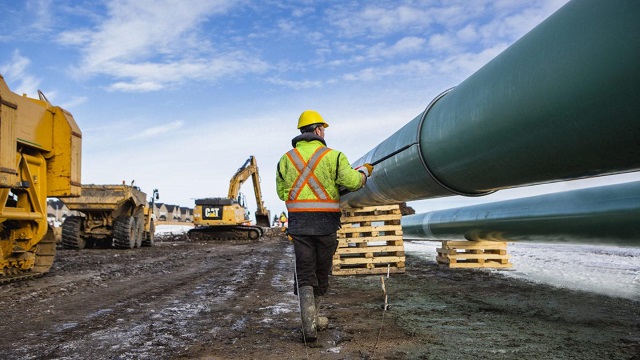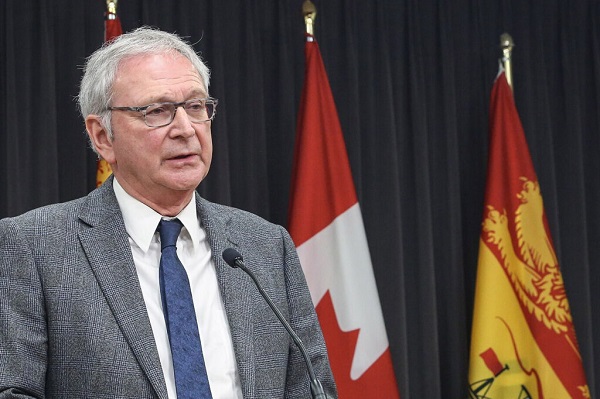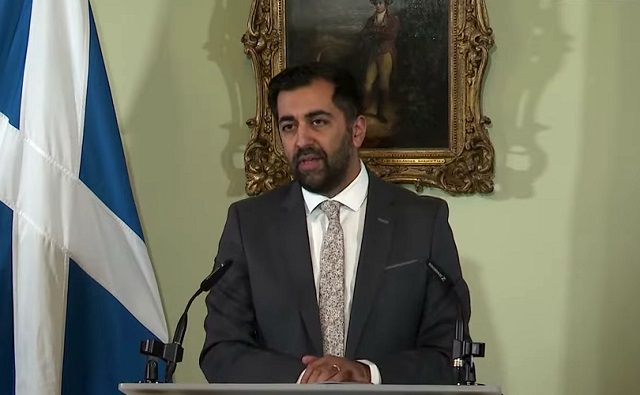From Project Confederation
With the United Nations’s 28th Climate Change Conference in Dubai generating headlines, we all knew it was only a matter of time before Canada’s radical eco-activist Environment Minister did something stupid.
And here it is, from Steven Guilbeault himself:
“The Government of Canada’s plan to cap and reduce emissions from Canada’s largest emitting sector is ambitious, but practical. It considers the global demand for oil and gas — and the importance of the sector in Canada’s economy — and sets a limit that is strict, but achievable.”
That’s right, folks – the Oil and Gas emissions/production cap is finally upon us.
We launched a campaign last year, around this same time, warning that this was coming.
Now, we know just how bad it actually is.
If you already agree that we should Stop The Cap On Oil And Gas,
click here to sign the petition, but if you want more details, read on!
The framework that’s being proposed by the federal government would cap emissions at 35% – 38% below 2019 levels.
How exactly would this be done?
What will it cost?
No one knows.
The federal government just says that they’ll release the details via regulation sometime next year.
Alberta Premier Danielle Smith is livid, issuing a statement:
“[The announcement is an] intentional attack by the federal government on the economy of Alberta and the financial well-being of millions of Albertans and Canadians.”
“Justin Trudeau and his eco-extremist Minister of the Environment and Climate Change, Steven Guilbeault, are risking hundreds of billions of investments in Alberta’s and Canada’s economy.”
Saskatchewan Premier Scott Moe echoed Smith:
“[The cap] will have serious economic impacts on Canadians and limit our sustainable Canadian energy products from providing heat and electricity to the world.”
“Saskatchewan will protect our constitutional right to build our economy in accordance with the priorities of Saskatchewan families and businesses.”
The federal government has been in legal hot water lately over constitutional overreaches – with the Supreme Court deeming the Impact Assessment Act unconstitutional in October and the Federal Court ruling the plastics ban unconstitutional in November.
Ottawa has consistently ignored provincial jurisdiction on a wide range of issues, and their inability to stay in their constitutional lane has been a major source of tension with the provinces.
This emissions cap is just the latest example, as natural resource development is guaranteed to be the sole jurisdiction of the provinces in the Constitution of Canada.
As such, the emissions cap is clearly unconstitutional – but even if it wasn’t, it would be a terrible policy anyway.
First, it’s an admission by the government that the carbon tax – their signature climate change policy – is not working.
The entire purpose of the tax was to be a “market mechanism” to reduce emissions, and yet now they’re admitting that they need even more regulations to reduce emissions.
This cap is a direct and deliberate attack on western Canada’s oil and gas industry.
Remember – the cap will not apply to any industry other than oil and gas.
Ontario’s automotive industry, Quebec’s cement industry, and other high-emitting industries in other parts of Canada are not having their emissions capped.
The cap also excludes refineries – even though that is part of the oil and gas industry – because many of Canada’s refineries happen to be in regions of the country that mostly vote Liberal.
If the federal government were actually concerned about the environment, they would implement policies designed to reduce emissions across all industries and all regions of Canada.
Instead, the hypocritical and political nature of Ottawa’s climate agenda reveals their true intentions and undermines the credibility of their entire plan.
That’s why we’re renewing our campaign calling on the federal government to back off, respect the Constitution, and stop infringing on provincial jurisdiction.
If you agree, please sign our petition to Stop The Cap On Oil And Gas:
Josh Andrus
Executive Director
Project Confederation


 Trans Mountain participates in a cultural ceremony with the Shxw’ōwhámél First Nation near Hope, B.C. Photograph courtesy Trans Mountain
Trans Mountain participates in a cultural ceremony with the Shxw’ōwhámél First Nation near Hope, B.C. Photograph courtesy Trans Mountain
















